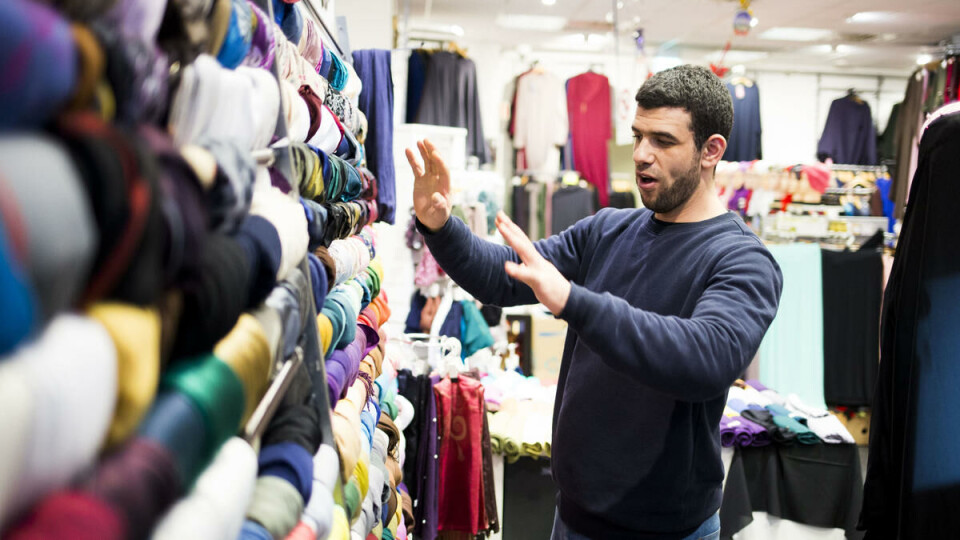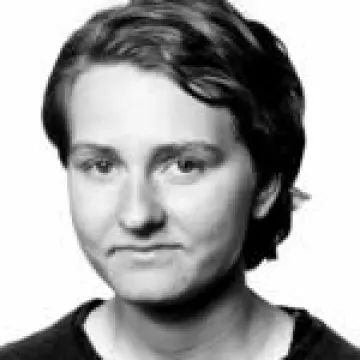
Islamic clothing seller: niqab ban is pointless
Several higher education institutions in Norway want to ban niqabs. Foad Naser says almost no one buys them anyway.
At Oslo Hijab Hus you can find hijabs of every color. The store also offers niqabs for those who are interested, but that's not many.
«There are very few people using niqabs, so it’s not an important debate,» Foad Naser, manager of the store, said.
He says the store usually only sells one niqab every other month. Most of them go to Norwegian converts or non-Muslims, for example people working with theater productions.
When the debate rages though, sales increase. Naser says he remembers back in 2015 he sold 10 niqabs in a week. He says he worries about how a niqab ban could affect people.
«It will create a bigger divide between the people it applies to and society at large. Some people buying niqabs said they wanted to use it to show their defiance against a ban,» he said.
Communication problem
Despite the apparent low demand however, the niqab debate has continued. In an Oct. 5 Aftenposten op-ed, 34 academics insisted niqabs must be banned from higher education institutions. The piece was signed by several UiO professors, including Raino Malnes, Nina Witoszek, Terje Tvedt, and Janne Haaland Matlary. Seven of the eight universities in Norway have rejected the government’s suggestion for a ban.
«We shouldn’t stop making demands of those who participate in public discussions, simply because of vague concerns. What is more important is the undoubted effect that face coverings have,» Raino Malnes, professor in political science at UiO, explained in an interview with Universitas. «It makes it possible to avoid taking responsibility for one’s opinions. Additionally, masks are concerning in the public sphere.»
Malnes went on to express concern about the effect niqab-using students will have on seminar groups and other arenas.
«When someone masks themselves, of course it doesn’t ruin the university, but it does degrade the sincerity and spontaneous exchanges necessary for intellectual development,» he argued.
These are the Iranian students PST fears
«Not everyone has the same right to education»
Lars Gule, Associate Professor in the Department of Education and International Studies at HiOA, was one of the first to support a ban on face coverings in educational institutions. He strongly rejects the argument for inclusion.
«Some people say everyone has the same right to education. That’s not true. Universities and colleges have a number of prerequisites for students. You can’t come to a lecture topless – it’s unacceptable and disrupts the class,» said Gule. «If someone using a niqab insists on participating, she’s asking other students to treat her like she is fully present, when she is actually absent.»
Partial ban
Curt Rice, Rector at HiOA, agrees with Naser. He says a ban on face coverings only answers a problem that doesn’t actually exist.
«I’m against the government’s proposal for a national ban, but that doesn’t mean I support using niqabs. I’m against the ban because I think we don’t need it,» he said. «This is a solution for a nonexistent problem. It fascinates me that we have a public sector with the capacity to produce these kind of proposals,» Rice added.
Rice says there are some programs where a ban has already been implemented, based on particular circumstances when coverings can prove problematic.
«There are some programs at HiOA where we have a ban, but I want to work on integration, and that means we can’t keep someone out based on religious garments. We have to talk with individuals and try to understand their situation. A national ban is exclusionary, not inclusionary,» Rice said.


































